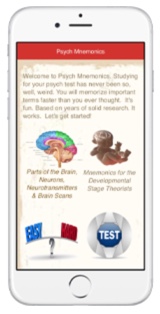Use Mnemonics to Quickly Memorize Psychiatric Medications
Introduction
Having a hard time memorizing psychiatric medications and which disorder they are used to treat? These memory tricks will get them into your head in minutes – and they’ll stick so you can get a better grade on your test. I’ve got ways to remember 12 medications like Zoloft, Prozac, Ritalin, Adderall, Lithium, and more – and which diagnosis (Depression, Anxiety, Psychosis, etc.) the drug is used to treat. Don’t spend hours in rote memorization – use these memory tools instead.
Welcome back to another episode of The Psych Files! Today, we’re on an exciting mission: unraveling the mysteries of psychiatric medications through mnemonic techniques.
The Memory Struggle
We all know the struggle. Memorizing psychiatric medications can be daunting. There are so many, and their names? Complicated! So, for all high school and college students studying psychology, this episode is for you. Especially if you’re overwhelmed by the sheer number of drugs to remember.
Why Mnemonics?
Mnemonics offer a clever way to remember information. Instead of rote memorization, which can be dry and ineffective, mnemonics involve mental images. For instance, imagine connecting the medication “Prozac” with a “Pro” tennis player who’s calm amidst game pressure – indicating its use for depression. Simple, right? But that’s just the beginning.
Dive into “SPAMMED”
To help you further, we’ve coined the acronym “SPAMMED.” This stands for five major psychiatric disorders:
- Stimulants
- Psychosis
- Anxiety
- Mood stabilization
- Mood (Depression)
- Effexor (and other medications)
- Drugs like Ativan, Xanax, Zoloft, and more.
Each letter will serve as a memory cue, connecting you to a list of related medications. Thus, the next time you’re trying to recall the use of “Ritalin” or “Effexor,” “SPAMMED” will guide you.
Rote Memorization: An Old Friend
Now, we’re not completely discarding traditional learning. Rote memorization has its place, especially in academia. Sometimes, you just need the old-fashioned way. However, combining it with mnemonics can supercharge your memory.
Journey to Mastering Medications
In this episode, we’re diving deeper than ever before. We’ll explore each psychiatric medication, link it with mnemonic techniques, and even give a nod to the traditional learning methods that have stood the test of time. So, if you’re eager to impress your peers and ace your exams, you’re in the right place.
To wrap up, mnemonics can be game-changers. Coupled with the right techniques, you’ll be mastering the art of psychiatric medications in no time.






Heather
September 18, 2018Thanks for this! I’ve been studying for the EPPP, and many of your videos and audio files have been very effective in helping me remember various terms and concerns. I thought I’d share another memory aid for the depression medications. You mentioned Zac Efron, and I continued with it. Here is what I came up with…
Medications associated with depression are Prozac, Zoloft, Effexor, and Wellbutrin. (aka proZAC, zoLOFT, eFIXor, and WELLbutrin).
To remember this, you need to visualize ZAC Efron (prozac) going to a LOFT/apartment (zoloft) for a DEEP PRESSING (depression) massage to help him get WELL (wellbrutrin) and FIXED (effexor).